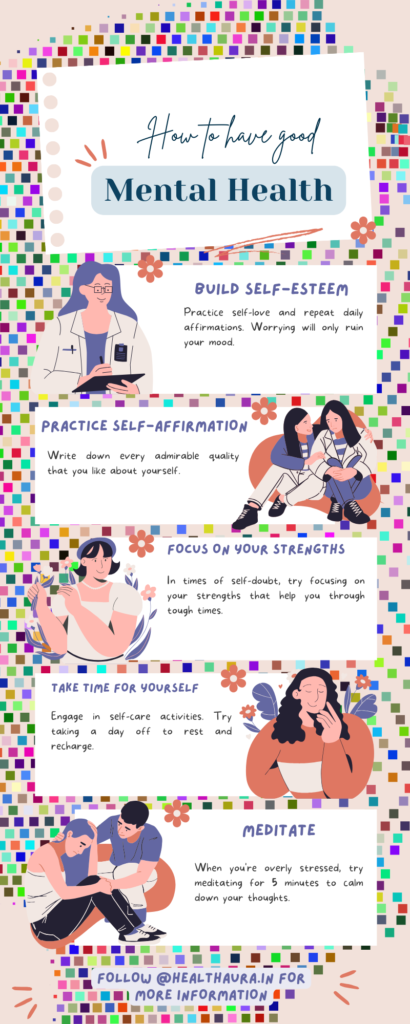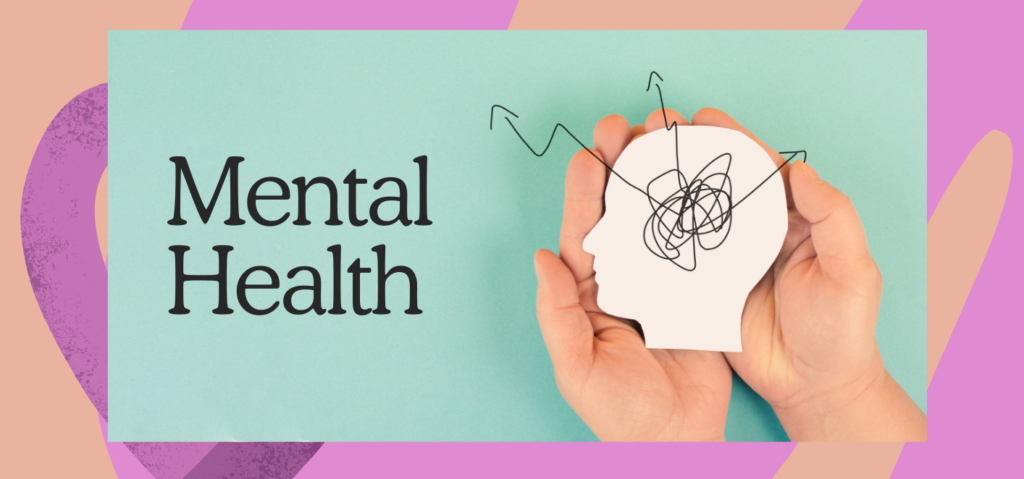Welcome to our in-depth mental health solutions, where we delve into the myriad options available to support and enhance your mental well-being. In today’s fast-paced world, prioritizing mental health is not just beneficial—it’s essential. Whether you’re exploring preventative strategies, seeking ways to manage ongoing issues, or simply curious about the resources available, this post is designed to equip you with the knowledge and tools you need. Join us as we explore mental health solutions’ importance, variety, and impact, empowering you to proactively move towards living a better, more balanced life.
Table of Contents
Understanding Mental Health
Our mental health influences our thoughts, feelings, and actions daily. It affects our ability to handle stress, relate to others, and make choices. While the term ‘mental health’ is often used interchangeably with ‘mental health conditions,’ they are not the same. Good mental health refers to well-being when people know their potential, manage daily challenges, do quality work, and contribute to their community.

However, when we talk about mental health solutions, we’re addressing the strategies and services in place to maintain or improve mental health and assist those with mental health conditions. These solutions range from preventive measures and early intervention to treatment and recovery support, aiming to improve people’s and communities quality of life.
The Spectrum of Mental Health
Mental health forms a continuum, from optimal well-being to severe disorders, impacting every aspect of life. It’s crucial to recognize that having good mental health involves more than just not having mental illness also encompasses emotional, psychological, and social well-being.
The Impact of Neglecting Mental Health
Neglecting one’s mental health might have serious repercussions, including deteriorating physical health, strained relationships, reduced productivity, and, in severe cases, even suicide. Thus, understanding mental health is the first step toward recognizing the need for and seeking mental health solutions.
Mental Health in Various Life Stages
Anybody, regardless of age, can be affected by mental health difficulties, gender, or background. Each life stage presents unique challenges and stressors, from youth and adolescence to maturity and ageing. Early identification and resolution of these problems can prevent more severe problems later in life.
The Role of Mental Health Solutions
Mental health solutions are vital in helping individuals manage stress, cope with adversity, and engage fully in life. These varied solutions include therapy, medication, lifestyle changes, and support systems tailored to each individual’s needs.
The Importance of Seeking Solutions for Mental Health
Addressing mental health proactively is crucial for maintaining overall well-being and quality of life. Seeking mental health solutions is not a sign of weakness but a step towards strength and resilience. This section delves into why it is vital to pursue mental health solutions and the positive outcomes they can bring.
Early Intervention Prevents Escalation
One key reason to seek mental health solutions early is to prevent issues from escalating. Like any health concern, early detection and intervention in mental health can prevent problems from worsening, making them more manageable in the long run. Mental health solutions can provide the tools and strategies to cope with challenges before they become overwhelming.
Enhancing Quality of Life
Mental health solutions can significantly improve the quality of life. They help individuals manage stress, enhance relationships, improve productivity, and foster happiness. When mental health is nurtured, individuals can make the most of their potential, cope with life’s stresses, work productively, and contribute more effectively to their communities.
Breaking the Stigma
Seeking and discussing mental health solutions plays an essential part in eradicating the stigma attached to mental health issues. Open conversations and acceptance of mental health solutions encourage more people to seek help, fostering a more supportive and understanding society.
Comprehensive Well-Being
There is a close relationship between physical and mental wellness. Neglecting mental well-being can lead to serious physical health problems. Mental health solutions contribute to a holistic approach to health, ensuring that individuals maintain balance and harmony in all aspects of their lives.
Empowerment and Self-Realization
Engaging with mental health solutions empowers individuals to take control of their mental well-being. It facilitates self-realization, helping people understand their thoughts, emotions, and behaviours. This self-awareness is a critical step towards personal growth and fulfilment.
Overview of Mental Health Solutions
Mental health solutions encompass a wide range of strategies, treatments, and supports designed to improve mental well-being and assist those dealing with mental health challenges. These solutions are diverse, catering to individuals’ various needs and preferences. Here, we provide an overview of the main types of mental health solutions, highlighting their importance in fostering mental resilience and well-being.
Therapy and Counseling
One of the cornerstone mental health solutions is therapy, including counselling and psychotherapy. These interventions involve working with a trained professional to address specific issues or overall mental well-being. Therapies can vary in approach, from cognitive-behavioral therapy (CBT) to psychodynamic therapy, each tailored to the individual’s needs.
Medication
Medication is another vital solution, particularly for those dealing with mental health disorders that affect brain chemistry. Antidepressants, anti-anxiety medications, mood stabilizers, and antipsychotics are commonly prescribed to manage symptoms and improve quality of life.
Lifestyle Adjustments
Mental health solutions also include lifestyle adjustments that promote mental well-being. Regular physical activity, a nutritious diet, sufficient sleep, and stress-reduction strategies like mindfulness and meditation can significantly impact mental health.
Support Groups
Support groups provide a forum for people to discuss their experiences and receive support from others facing similar challenges. These groups can provide a sense of community, minimize emotions of loneliness and provide helpful guidance on managing mental health issues.
Digital Health Solutions
Technological advancements have led to digital mental health solutions, such as mental health apps, online therapy, and telepsychiatry. These solutions provide accessible and flexible options for individuals seeking support, especially in areas with limited traditional services.
Alternative Therapies
Some individuals may find relief in alternative therapies, such as art therapy, music therapy, or animal-assisted therapy. While these may not be primary treatments, they can be valuable complementary solutions for enhancing mental well-being.
Education and Awareness Programs
Increasing awareness and understanding of mental health is crucial. Educational programs and campaigns can demystify mental health issues, promote early intervention, and encourage a more supportive and informed community.
Comparison of Mental Health Solutions
When exploring mental health solutions, it’s crucial to understand that each individual’s needs and circumstances are unique. What works for one person may be less effective for another. Here, we compare various mental health solutions based on key factors, providing insights to help you choose the most suitable options.
Effectiveness
Therapy and Counseling: Highly effective for various mental health issues, especially when tailored to the individual’s needs. Cognitive-behavioural therapy (CBT), for example, is well-supported by research for treating anxiety and depression.
Medication: Particularly effective for certain psychiatric conditions like schizophrenia, bipolar disorder, and severe depression. The effectiveness often depends on finding the proper drug and dosage.
Lifestyle Adjustments: These can be very effective as preventive measures or to enhance other treatments. However, their effectiveness can vary significantly among individuals.
Digital Health Solutions: Emerging evidence suggests they can be effective, especially for mild to moderate mental health issues. However, they may need to be more sufficient for severe conditions.
Accessibility
Therapy and Counseling: Accessibility can vary based on location, insurance coverage, and availability of therapists.
Medication: Generally accessible but requires a prescription and ongoing medical supervision.
Lifestyle Adjustments: These are highly accessible as individuals can implement them in most circumstances.
Digital Health Solutions: Offer high accessibility, especially in areas with limited mental health services.
Cost
Therapy and Counseling can be expensive, especially if not covered by insurance, but many therapists offer sliding-scale fees based on income.
Medication: Costs vary, with generic medications typically being more affordable. Insurance coverage is a significant factor.
Lifestyle Adjustments are generally low-cost, but some aspects, like healthy eating, can be more expensive than less healthy options.
Digital Health Solutions: Often more affordable than traditional therapy, with many free or low-cost options.
User-Friendliness
Therapy and Counseling: Requires a commitment to attend sessions and engage in the therapeutic process.
Medication: User-friendly in consumption but requires adherence to dosages and schedules.
Lifestyle Adjustments: User-friendliness varies; some changes are more accessible to implement than others.
Digital Health Solutions: Typically designed for user-friendliness, easy-to-navigate interfaces and accessibility from home.
Support and Community
Therapy and Counseling: Provides professional support, but community support varies.
Medication: Professional management support; community support is indirect.
Lifestyle Adjustments: Community support varies; online communities can be particularly supportive.
Digital Health Solutions: Some offer community features, allowing users to connect and support each other.
Choosing the Right Mental Health Solution
Selecting the appropriate mental health solution is a pivotal step towards improving well-being. Given the variety of available options, making an informed choice can feel overwhelming. Here are some guidelines to help you choose the right mental health solution that aligns with your needs and lifestyle.
Assess Your Needs
Self-Reflection: Begin by understanding your own needs. Are you dealing with stress, anxiety, depression, or other mental health issues? Understanding the nature and severity of your concerns is crucial.
Professional Evaluation: Consulting with a mental health professional can provide a precise diagnosis and guidance. They can recommend specific therapies or treatments based on your condition.
Consider Your Preferences and Lifestyle
Treatment Compatibility: Consider what aligns best with your lifestyle. For example, online therapy or digital solutions might be more feasible if you have a busy schedule.
Personal Comfort: You must feel comfortable with the chosen solution. Comfort is critical to effectiveness, whether it’s the type of therapy or the therapist.
Evaluate Accessibility and Affordability
Accessibility: Ensure the solution is accessible to you. Online therapy might be more suitable than traditional in-person sessions if you live in a remote area.
Affordability: Consider the cost and whether it’s covered by insurance or fits within your budget. Some solutions, like lifestyle adjustments, are generally more cost-effective.
Research and Seek Recommendations
Information Gathering: Research various mental health solutions to understand their effectiveness and what they entail.
Seek Recommendations: Talk to healthcare professionals, friends, or family members who can provide insights or share their experiences with different mental health solutions.
Trial and Adjust
Trial Period: Giving a new solution a fair trial is essential. Some therapies or medications may take time to show results.
Be Open to Adjustment: Be prepared to reassess and adjust your approach if the chosen solution isn’t meeting your needs.
Integrated Approach
Combination of Solutions: Often, combining different solutions, such as therapy and lifestyle changes, can be more effective than a single approach.
Holistic Consideration: Consider how different solutions can complement each other to provide a holistic approach to your mental health.
Professional Guidance
Continuous Dialogue: Maintain an open line of communication with your mental health provider. Regular updates and discussions can help tailor the solution to your evolving needs.
Resources and Getting Help for Mental Health Solutions
Knowing where to turn when seeking help for mental health issues can be a significant first step. A wealth of resources is available to provide support, information, and guidance on mental health solutions. Here’s how to access these resources and get the help you need.
Mental Health Professionals
Psychologists and Therapists: Licensed professionals can offer therapy and counselling tailored to your needs.
Psychiatrists: Medical doctors specialized in mental health who can prescribe medication and provide therapy.
Counsellors and Social Workers: Provide support, counselling, and connection to community resources.
Online Resources
Mental Health Websites: Reputable sites like the National Institute of Mental Health (NIMH) or the World Health Organization (WHO) offer educational materials and guides on various mental health conditions and solutions.
Online Forums and Support Groups are platforms where you can solicit assistance from others and exchange experiences facing similar challenges.
Crisis Intervention
Hotlines: The National Suicide Prevention Lifeline and similar services provide immediate support for those in crisis.
Text Services: For those who prefer texting, services like Crisis Text Line offer support via text messaging.
Community Resources
Local Mental Health Clinics: Provide various services based on income, often on a sliding scale.
Support Groups: Local or online groups offer shared experiences and a feeling of community, which can be invaluable.
Educational Materials
Books and Articles: Many books and articles offer insights and strategies for dealing with mental health issues.
Workshops and Seminars: Participating in educational events can provide valuable information and coping strategies.
Apps and Digital Solutions
Mental Health Apps: Apps designed to assist with meditation, mindfulness, stress management, or tracking mood can be beneficial supplements to traditional therapies.
Teletherapy Services: Make mental health professionals accessible from the comfort of your home.
Insurance and Financial Assistance
Insurance Coverage: Understand what your health insurance covers regarding mental health services.
Financial Aid Programs: Some organizations offer financial assistance to those who cannot afford mental health care.
How to Get Started
Consult a Primary Care Physician: Your doctor can offer a preliminary assessment and direct you to mental health specialists.
Direct Contact: Contact mental health professionals or clinics for services and availability.
Conclusion,
we urge you to embark on a journey of self-discovery and growth, taking proactive steps towards understanding and improving your mental health. Explore the available solutions, seek professional guidance, and utilize the resources. Your mental health journey is not just a chapter but a transformative part of your story, where resilience, recovery, and renewal can be written.
Embrace the journey towards better mental health with a sense of empowerment and control. The path may have its challenges, but the destination—a state of improved well-being and happiness—is within your grasp, and each step you take gets you one step nearer.
FAQ
What are mental health solutions?
Mental health solutions refer to the various strategies, treatments, and supports designed to improve mental well-being and assist individuals with mental health issues. These solutions range from therapy and medication to digital apps and lifestyle changes.
How do I know if I need a mental health solution?
If you’re feeling depressed or anxious all the time, stress, or other emotional disturbances that impact your daily life, it may be time to explore mental health solutions. Changes in behaviour, such as withdrawal from social activities or changes in sleep or appetite, can also be indicators.
Are mental health solutions only for people with diagnosed conditions?
No, mental health solutions can benefit anyone looking to improve their mental well-being, not just those with diagnosed conditions. They can be used for personal development, stress management, and overall quality of life.
How effective are mental health solutions?
The effectiveness of mental health solutions varies depending on the individual and the specific solution. Many solutions, such as therapy and medication, have been scientifically proven effective for various conditions. However, effectiveness can also depend on the individual’s commitment and the solution’s suitability.
Can I combine different mental health solutions?
Yes, often, a combination of different mental health solutions, such as therapy and lifestyle changes, can be more effective. Consulting a healthcare provider is essential to create a comprehensive and safe approach tailored to your needs.
How do I choose the right mental health solution?
Choosing the right mental health solution involves understanding your needs, preferences, and circumstances. It’s helpful to consult with a mental health expert who can provide guidance based on your situation. Consider factors like accessibility, cost, and comfort with the solution.
Are there online resources for mental health solutions?
Numerous online resources, including websites, apps, and online therapy services, offer various mental health solutions. These can be particularly useful for those seeking flexible or remote options.
What should I do if I’m in crisis?
If you’re in crisis or think you might harm yourself or others, seek immediate help. A crisis hotline, like the National Suicide Prevention Lifeline, can be called by or go to the nearest emergency room. Remember, urgent situations require immediate attention.



